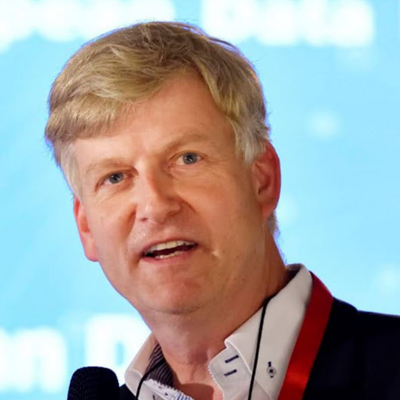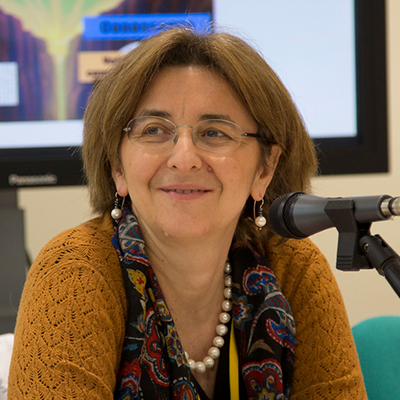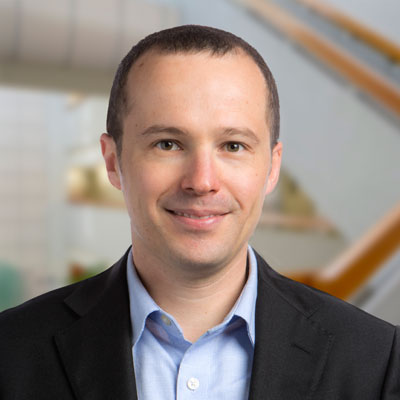Keynotes

Title keynote: “Object-Centric Process Mining: Moving from 2D to 3D Analytics”
Abstract:
Companies struggle with the complexity of their processes, and data are often scattered over many tables in different systems. In the past, automation initiatives often failed because complexity was underestimated, and it is impossible to simply replace systems based on high-level process diagrams. The same complexity makes it difficult to apply Machine Learning (ML) and Artificial Intelligence (AI). Yet, organizations urgently need to address their execution gaps: What do organizations expect, and what are they realistically capable of today? These gaps and their root causes can be made visible using process mining. Process Mining is currently the most concrete technology to support the vision embodied by terms such as Hyperautomation and Digital Twin of an Organization (DTO). Process mining helps to focus automation, ML, and AI initiatives. The keynote demonstrates the advantages of Object-Centric Process Mining (OOPM). By considering multiple object types at the same time, it is possible to get a three dimensional view of the processes in an organization.
Biography:
Prof.dr.ir. Wil van der Aalst is a full professor at RWTH Aachen University, leading the Process and Data Science (PADS) group. He is also the Chief Scientist at Celonis, part-time affiliated with the Fraunhofer FIT, and a member of the Board of Governors of Tilburg University. He also has unpaid professorship positions at Queensland University of Technology (since 2003) and the Technische Universiteit Eindhoven (TU/e). Currently, he is also a distinguished fellow of Fondazione Bruno Kessler (FBK) in Trento, deputy CEO of the Internet of Production (IoP) Cluster of Excellence, co-director of the RWTH Center for Artificial Intelligence. His research interests include process mining, Petri nets, business process management, workflow automation, simulation, process modeling, and model-based analysis. Many of his papers are highly cited (he is one of the most-cited computer scientists in the world and has an H-index of 169 according to Google Scholar with over 129,000 citations), and his ideas have influenced researchers, software developers, and standardization committees working on process support. He previously served on the advisory boards of several organizations, including Fluxicon, Celonis, ProcessGold/UiPath, and aiConomix. Van der Aalst received honorary degrees from the Moscow Higher School of Economics (Prof. h.c.), Tsinghua University, and Hasselt University (Dr. h.c.). He is also an IFIP Fellow, IEEE Fellow, ACM Fellow, and an elected member of the Royal Netherlands Academy of Arts and Sciences, the Royal Holland Society of Sciences and Humanities, the Academy of Europe, and the North Rhine-Westphalian Academy of Sciences, Humanities and the Arts. In 2018, he was awarded an Alexander-von-Humboldt Professorship.
Title keynote: “Computational Linguistics and Humanities: a Renewed Synergy”
Abstract:
The synergy between computational linguistics (CL) and humanities has deep historical roots and has recently gained momentum due to various reasons, ranging from the maturity of language technologies and tools for text representation and analysis to the growing availability of digital texts. In particular, CL and humanities have created a rich ecosystem, albeit still faced with challenges on both fronts. In this talk, I will delve into the current state of this synergy, its potential impact on both scientific and applied sides, and the problems it has to face. Different case studies will be presented, using language technology to find new answers to still open research questions of humanities disciplines, or to explore questions that were previously impossible to address. The potential of this renewed synergy will also be investigated from the CL perspective, showing how language technologies can benefit from humanities data.
Biography:
Dr. Simonetta Montemagni is Director of Research at the Institute of Computational Linguistics “Antonio Zampolli” of the Italian National Research Council (ILC-CNR).
She obtained a Ph.D. in Computational Linguistics from the University of Manchester Institute of Science and Technology (UK) in 1995.
She has been working in the areas of Computational Linguistics and Digital Humanities since 1986 and contributed to more than 60 international and national projects, in many of which she played a leading role. She has authored more than 180 peer-reviewed publications, going from monographs, book chapters, papers in journals and conference proceedings to edited volumes. Starting from 1990, she taught Computational Linguistics and Digital Humanities courses in Perugia, Firenze, Ferrara and Pisa universities (from graduate to PhD level) and supervised graduate and PhD thesis in computational linguistics related subjects.
She is also: editor in chief and member of editorial boards of journals and book series as well as peer reviewer for high impact international journals and conferences of the Computational Linguistics field; member of national and international committees for the selection of research grants and projects as well as for research evaluation; member of international committees and of scientific and programme committees of national and international conferences, workshops and summer schools.

Title keynote: “AI and Wearable Sensors to enable Digital Medicine”
Biography:
Giorgio Quer is the Director of Artificial Intelligence at the Scripps Research Translational Institute, where he is leading the Data Science and Analytics team within the All of Us Research Program’s Participant Center (NIH). The Participant Center spearheads the enrollment of new participants and their engagement in the program.
His research focuses on artificial intelligence and probabilistic modeling applied to heterogeneous data signals, in order to extract key information and make predictions on future occurrences based on past data. He is involved in several digital medicine initiatives within the Scripps Research Digital Trials Center. For the DETECT study, he is developing algorithms to predict COVID-19 and other viral infections from wearable sensor data. He is responsible for collaborations with several industry partners, studying changes in heart rate and sleep data monitored by commercial wearable devices. He is also interested in the detection and modeling of atrial fibrillation from single-lead ECG signals. He is leading the collaboration with the Halicioglu Data Science Institute at UC San Diego towards the development of new AI models for health data.
